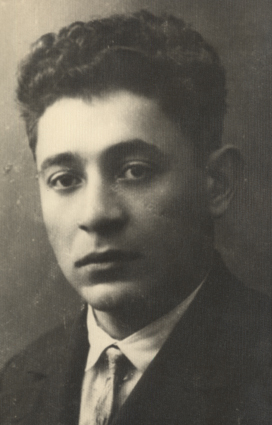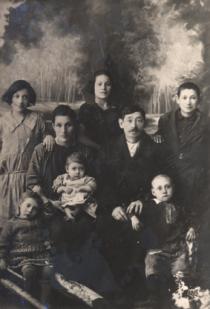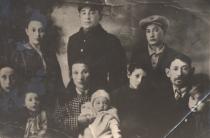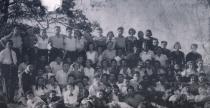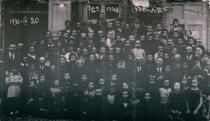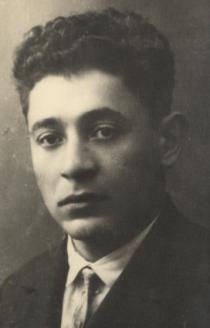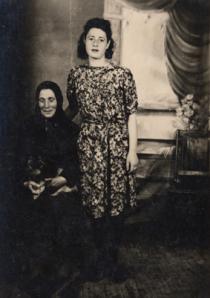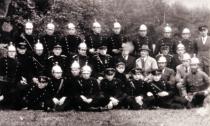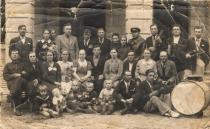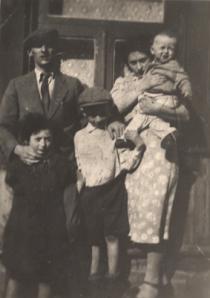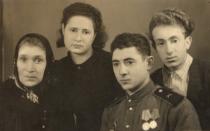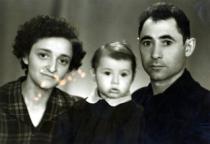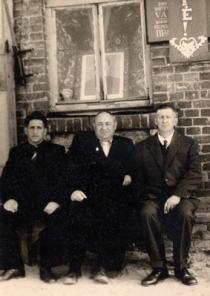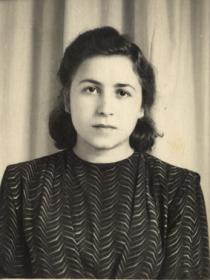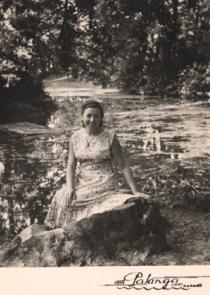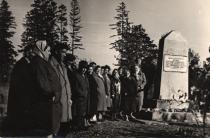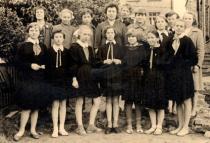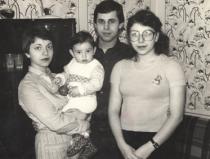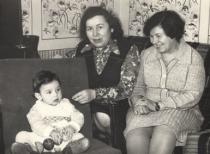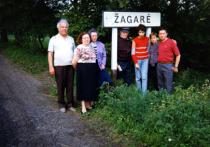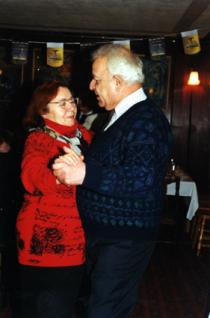This is my father Leibl Beitler at the age of 20. The picture was made in Zagare in 1929 before the wedding.
My father Leibl Beitler was the eldest in the family. He was born in 1909. My father was the most apt as grandmother used to say. He was tall, strong, meek and kind, the protector of the weak. Grandmother once told a story. When father was 19 he saw a gang of drunk Lithuanians teasing a Jew. He removed a shaft and had the gang leave the place. Father's family was very poor, so he finished only 4 classes of Jewish public school. Then he was apprenticed by a cobbler. Before he turned 22, he helped grandmother and went with her to buy fish. When he got married, she started working as a cobbler.
My parents got married in 1931, when they were 22. they were wed in chuppah. They rented a small apartment after wedding. On 29 November 1932 I was born.
I vividly remember the house, where I spent my childhood. It was a small house for two apartments- the smaller one was occupied by two disabled people Meer and Golda. Parents worked hard and had a pretty good living. There were three rooms in the apartment. My mother was a high-class milliner and she had many orders. Mother's workshop was in the largest room. It was a corner room where three sewing machines were places, one for mother and the other two for her apprentices. Mother always apprenticed two people the way she was in Kaunas and they did simple work. There was a large wooden table, used for ironing and two large pig iron presses. They were heated with coals. They took them to the river as we did not want any sparkle get on a fabric. It was fun at home. Mother joked and sang. I liked to spend time with her apprentices.
At that times Jews were politically classified into Zionists and communists. Usually, well-bred and rich people belonged to Zionists. My father and his friend Pina were underground communists. It is hard for me to say what exactly my dad did. One of the most important tasks of their organization was to make the social library for the workers. It was established by my father and it was located in our house. There were several shelves full of books in our large room. Every day a librarian Daniel Kravets came to us and handed the books to the workers. I do not know what literature it was as I was not interested in those things at that time. I think those were banned books written by proletarian writers.
In late July 1940 Red Army units came in Lithuania and the Soviets came to power. Jews, mostly poor, were happy for it, as they had a hope for a better life. Not only Jews welcomed Russians, but also poor Lithuanians. There were constant meetings with the soviets, their movies were on. My parents were happy to see the soviets at power. Mother kept working. Father was assigned the chairman of the cooperative society. I do not know what that company was involved in, but father stopped being a cobbler. We started having a better life. I even remember that we bought two pairs of new shoes. My parents could not afford that before.
